Dealing with Post Car Accident Vertigo

Car accidents can cause both physical and emotional pain for all parties involved. While dealing with immediate damages, it can be difficult to recognize signs of injury. While some people are immediately affected by pain, others may experience delayed onset of injuries. Vertigo and dizziness are fairly common symptoms after a car accident, especially when your body has suffered a big jolt or you’ve hit your head directly.
Several different types of injuries can result in vertigo. Most common is whiplash, which may cause lightheadedness, having spatial awareness issues, experiencing dizziness or vertigo, and suffering from headaches or migraines. Some will heal on their own and others require immediate medical attention. You should always get yourself checked out by a doctor following any sort of car accident, regardless of how you feel.
There are four major causes of dizziness after a car accident: cervicogenic dizziness, benign paroxysmal positional vertigo, vascular damage, and brain injury. Cervicogenic dizziness, commonly referred to as vertigo, is typically caused by damage to the neck region. Vertigo causes a sensation making it feel like you or the room are spinning. An individual’s spinal column consists of several nerves which tell the brain the body’s location. These nerves, known as proprioceptors, allow individuals to navigate in the dark or with their eyes shut. These nerves are also integral to the body’s ability to maintain balance. When the neck region is injured, these proprioceptors can be damaged and the data that they send to the brain can be disrupted.
Another type of vertigo, called benign paroxysmal positional vertigo (BPPV), can also cause an individual to experience dizziness after a car accident. BPPV typically occurs after a violent movement of the head, common in many car accidents. The inner ear contains tiny calcium crystals known as otoliths. Otoliths move against nerve endings in the inner ear and are responsible for telling the brain the position of the head. When the head is violently jerked, these crystals can be moved from their normal location to other inner ear parts. Therefore, when they send signals to the brain, they do not make sense and confuse the postural control system and dizziness. Individuals suffering from BPPV typically report vertigo that occurs with certain neck and head movements.
Vascular damage is another possible cause of dizziness after a car accident. When the blood vessels in the neck are injured, it can result in restricted blood flow to the brain. Often, this injury is felt as pain in the back of the head that can grow stronger with time. This pain can be felt on either side of the head, or even in the middle, and can be felt as either an aching pain, a rise in pressure, or a throbbing sensation. Vascular damage is an incredibly serious medical condition that should be treated immediately. Lastly, If a head strikes something during the collision, or if the impact of the collision was severe, it is not uncommon for an individual to suffer a mild traumatic brain injury. Individuals suffering from a brain injury may report fogginess, confusion, dizziness, or memory loss. It is important for individuals who experience any of these symptoms to seek immediate medical attention after a car accident.
The most severe effects of post-traumatic vertigo typically last a few hours or a day, but symptoms may take 3 to 6 weeks to disappear completely. Unfortunately, some car accident victims continue to suffer chronic vertigo symptoms without relief.
Because post-traumatic vertigo can take any number of weeks or months to resolve, it’s important not to accept a settlement offer too early. Make sure the full scope of your injuries has been diagnosed by a doctor, and speak to an injury attorney about what a fair settlement should look like.
The number of injuries that can result from a car accident can be vast and depend on many factors, including the way the car was hit, the position in which you were hit if the driver or passengers were wearing a seatbelt, and the speed at which the accident happened. If you, or some you know, have been affected by a car accident, call 1-800-411-PAIN and get the help you need! We will refer you to the attorneys that will fight to get you the compensation you deserve and the medical attention you need. If you have been hurt in an accident, call 1-800-411-PAIN, and we will guide you in finding you the best medical and legal professionals.



